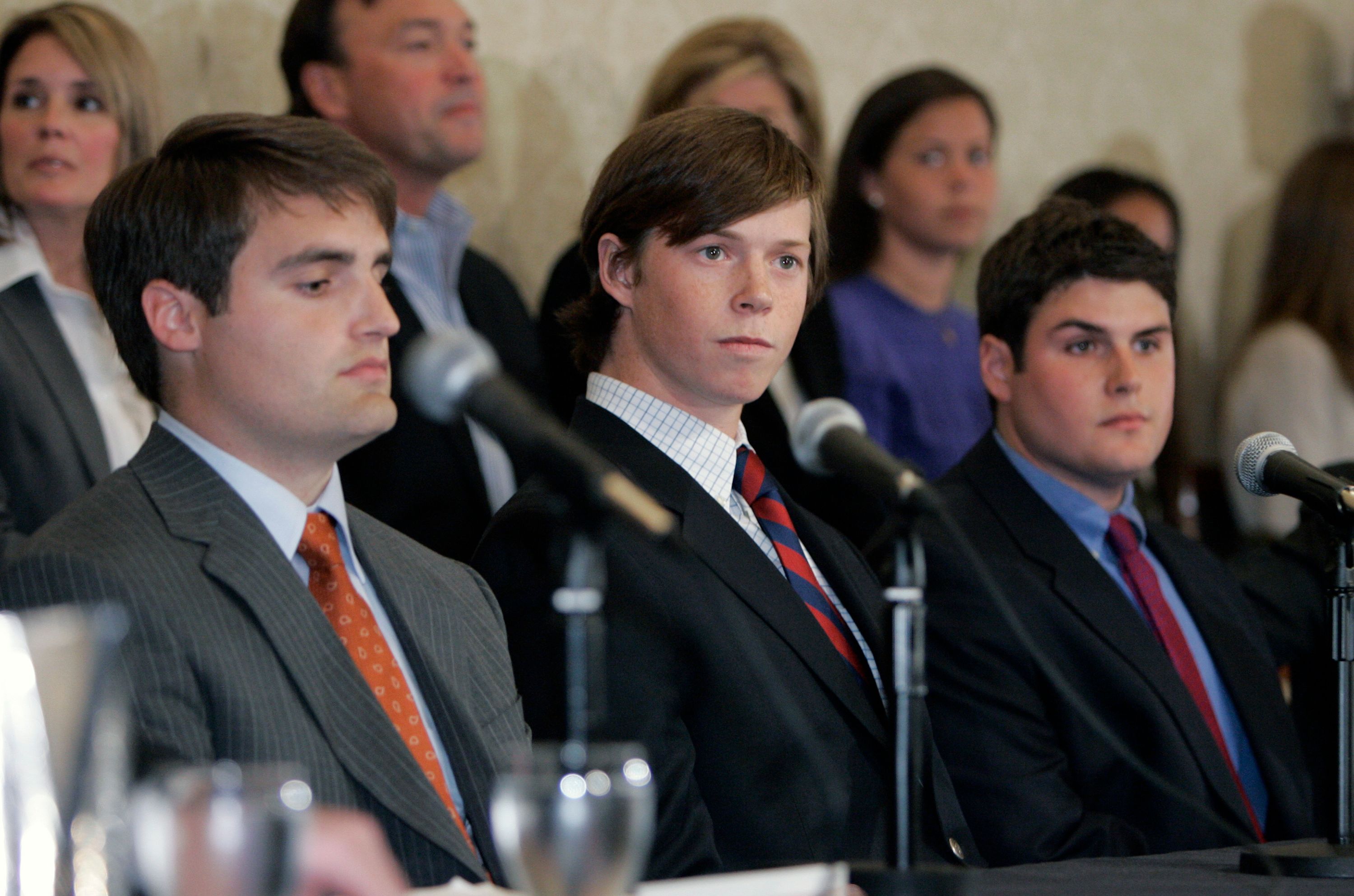12/13/2024

Crystal Mangum, the former exotic dancer who accused three Duke men’s lacrosse players of rape in 2006, igniting a national firestorm, now says she lied about the encounter.
“I testified falsely against them by saying that they raped me when they didn’t, and that was wrong. And I betrayed the trust of a lot of other people who believed in me,” Mangum said on the web show “Let’s Talk with Kat,” hosted by Katerena DePasquale.
The interview took place at the North Carolina Correctional Institution for Women, where Mangum is serving time for a 2013 second-degree murder conviction for stabbing her boyfriend.
“I made up a story that wasn’t true because I wanted validation from people and not from God,” Mangum said.
On the podcast, she said she hopes the three men will forgive her.
“I want them to know that I love them, and they didn’t deserve that, and I hope that they can forgive me,” she said.
Mangum’s admission comes nearly two decades after she said she was raped by former players David Evans, Collin Finnerty and Reade Seligmann.
According to the Duke student newspaper, Duke Athletics declined to comment. The university, and the school’s president and head men’s lacrosse coach at the time, did not respond to the student newspaper’s request for comment. There’s been no reported comment from the players.
 David Evans, left, Collin Finnerty, center, and Reade Seligmann, right, at a news conference after charges against them were dropped in 2007. Mandatory Credit:Chuck Burton/AP via CNN Newsource
David Evans, left, Collin Finnerty, center, and Reade Seligmann, right, at a news conference after charges against them were dropped in 2007. Mandatory Credit:Chuck Burton/AP via CNN NewsourceParty accusations and the fallout
The three were arrested following the woman’s allegations of sexual assault at a party.
The charges brought broad media attention, forced the cancellation of the team’s 2006 season, and cost coach Mike Pressler his job. The district attorney on the case was convicted of criminal contempt and disbarred.
In April 2007, the state’s then-Attorney General Roy Cooper, who is now governor, reviewed the case and exonerated the three men, declaring that the charges never should have been brought against them.
Duke University and the three players reached an undisclosed settlement shortly after the charges were dropped.
The city of Durham settled a lawsuit by the three men in 2014. As part of the settlement, Durham agreed to pay $50,000 to the North Carolina Innocence Inquiry Commission.
